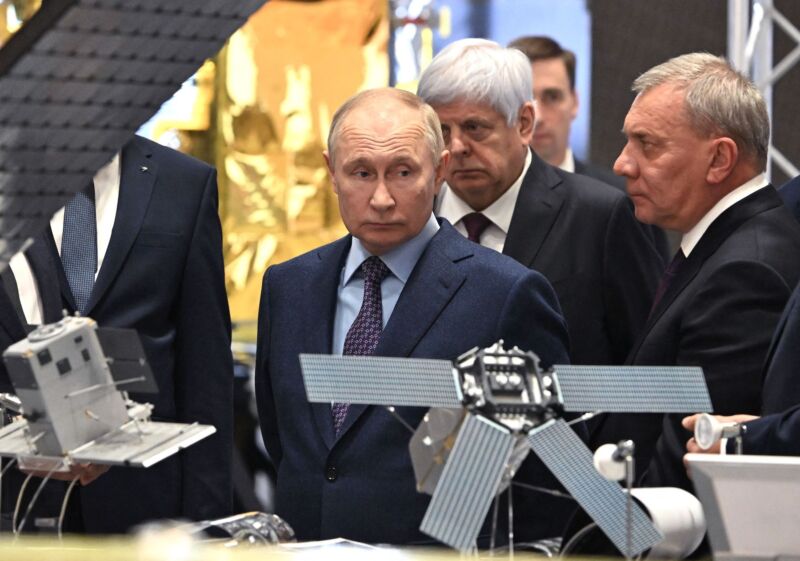Three Terms Sure To Grab Attention: Russia, Nuclear, Anti-Satellite Weapon

When you think about the prospect of Russia putting nukes in space, you can understand why some people might fill in the blanks and envision a surprise apocalyptic bombardment from orbit.
That is the nightmarish prophecy members of Congress tried to extinguish Wednesday after news leaked that US intelligence officials obtained information about Russian preparations for warfare on the high frontier.
It all began with a cryptic statement Wednesday morning from Rep. Mike Turner (R-Ohio), chairman of the House Intelligence Committee. Turner referenced intelligence information that the committee would begin sharing with all members of Congress about a “serious national security threat.”
The subject of Turner’s statement is an emerging Russian anti-satellite weapon system involving nuclear technology, sources in the national security community said.
But those are about the only specifics made public Wednesday about the national security threat. Several news organizations described the Russian program as an anti-satellite nuclear weapon system. The New York Times reported that the Russian weapon system is not currently in orbit, but it’s something Russia’s military wants to deploy.
A significant escalation
A nuclear anti-satellite weapon in space would represent a significant escalation in tensions between Russia and the United States. If Russia used it in space, the US military would not be able to defend against it. A nuclear explosion in orbit would destroy numerous satellites in collateral damage. It would also be the most serious threat to maintaining peace in space since the dawn of the Space Age and would violate the 1967 Outer Space Treaty, which bans nuclear weapons in orbit.
Before getting carried away, it’s important to note the vagueness of the statements from national security sources about the Russian anti-satellite program. It’s possible some of the particularities of the Russian anti-satellite weapon were lost as the information filtered out to the public Wednesday. In his statement, Turner called on President Biden to declassify information regarding the emerging national security issue, allowing a wider swath of people, including US allies, to discuss how to respond to the threat.
There was already public evidence that Russian officials have been slowly developing a nuclear-powered spacecraft that could engage in electronic warfare to jam or disrupt communications of an adversary’s satellites. During the Cold War, the Soviet Union launched more than 30 military satellites powered by nuclear reactors.
Such a program would focus on using nuclear technology to generate enough electricity to support high-power jammers that could, theoretically, engage with a range of US spacecraft, such as spy satellites, GPS satellites, or even SpaceX’s commercial Starlink Internet satellites.
These are all cornerstones of the US satellite fleet, providing intelligence data to the Pentagon and the White House, supporting civilian travel and precision bombing, and connecting millions of subscribers with broadband Internet service. The Starlink network is not just useful for civilians and the US military—it has also been vital to keeping communication lines open between Ukrainian military units in their fight against Russia’s invasion.
A Russian government official in 2022 said commercial satellites, like Starlink, could become “legitimate targets” if they were involved in the war in Ukraine. On the first day of Russia’s Ukraine invasion in February 2022, a satellite Internet network covering the region managed by the US company Viasat went down. Western countries have pointed the finger at Russia.
The top general in the US Space Force last year said the Pentagon could be called upon to defend US-owned commercial satellites from attack.
READ MORE HERE
